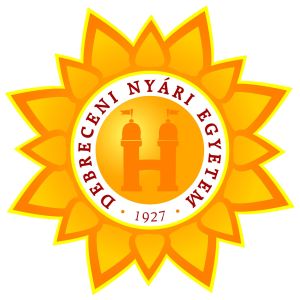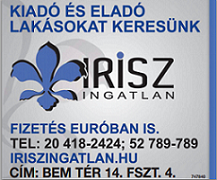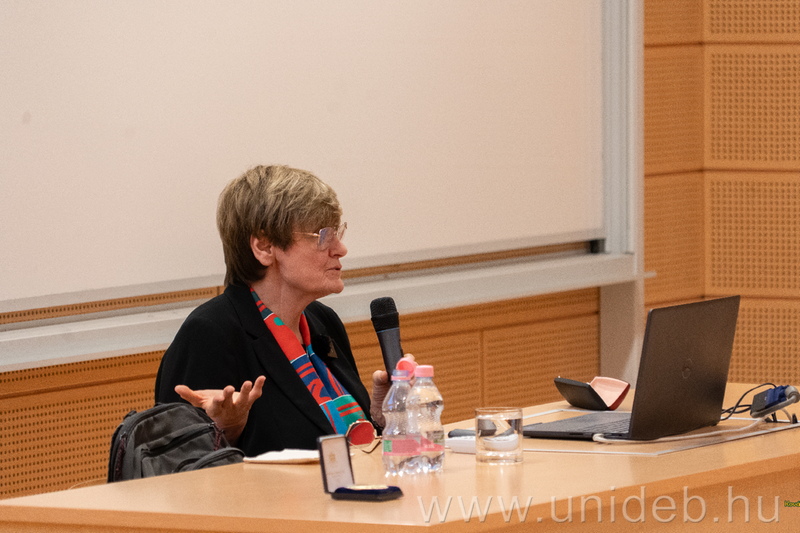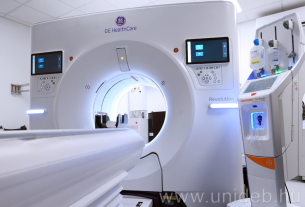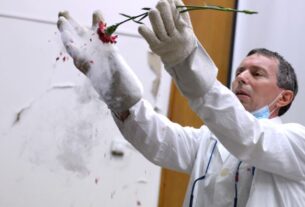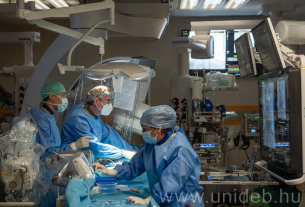At the University of Debrecen’s Szolnok Campus, Katalin Karikó gave an inspirational lecture to high school students, university students, educators, and healthcare professionals about the challenges and achievements of a scientific career. The Nobel Prize-winning biologist emphasized that success does not promote growth — it is failure that teaches us how to adapt.
Karikó, who was born in Szolnok, visited the campus as part of the city’s 950th anniversary celebrations, which commemorate its first documented mention in 1075.
In her motivational talk, Karikó spoke candidly about her childhood, her parents, her student years, and her career filled with both struggles and achievements. She shared that while giving lectures to students in the past, she often found it difficult to maintain their attention, but always felt it was worth the effort to influence young people and help shape their futures.
She revealed that her parents were simple people, she grew up in a thatched-roof house, and she was strongly motivated by her academically outstanding sister. Her love for science — chemistry and biology — blossomed through school competitions. In the late 1960s, winning third place was already a great achievement for her. “Back then, I gave interviews to the local newspaper Harsona — I never imagined CNN would one day be asking me questions.”
“In high school, I often dreamed of becoming a biologist and making a discovery of my own. My biggest dream was to work at the biology center in Kisújszállás, so I applied to study biology in Szeged. I was very motivated by the idea of being a researcher and loved plants, yet at first, I had to collect water fleas and extract fish oil. But soon I was allowed to conduct my first experiment, which eventually led to higher goals. One has to go through many challenges to reach their desired goal,” she explained.
According to Karikó, it is essential to always believe in oneself and work hard for success. One should never hold back, and she advised parents not to deprive their children of the opportunity to learn how to recover from failure on their own. She stressed that managing stress is key and that mental health is vital. Quoting the Hungarian-Canadian stress researcher János Selye, she emphasized that regardless of external circumstances, focus, self-improvement, and self-control are what matter most. Complaining, anger, denial, and comparison lead nowhere.
“These negative emotions drain your energy. That’s why you must ignore external obstacles you cannot control. With proper focus, anything is achievable. The more deeply someone immerses themselves in their interests, the more it shapes their entire life. Alongside mental well-being, physical health is also crucial. I ran a marathon at the age of 45, which for me symbolized achieving goals and overcoming seemingly impossible tasks. In research, publications follow results, and sometimes financial rewards may come with exciting discoveries. But understanding nature is far more important than career advancement alone — science should not become just a tool. Collaborative partnerships in research are essential; effective teamwork leads to shared patents and publications and helps young researchers advance,” Karikó added.
She also spoke about how she had to change workplaces multiple times — even a decade before receiving the Nobel Prize — but each change reinforced her belief not to be defined by failure. “Don’t let others define you. Let a healthy value system and self-confidence be your driving force. These are what will help you get back on your feet.”
“You can learn almost nothing from success, but failure teaches you everything. We should thank not only those who support us — family, friends, and colleagues — but also those who tried to make life difficult. I’m grateful to them too, because they pushed me to get to where I am today. If success had come easily, it wouldn’t have meant as much. I want to inspire future researchers and show them that I am just one of them,” she said.
In addition to inspiring future scientists — students and university attendees — the Nobel laureate also gave a talk to local healthcare professionals and university faculty members at the Szolnok Campus. She discussed her award-winning research and the development potential of synthetic mRNA-based medical technologies.
(unideb.hu)


